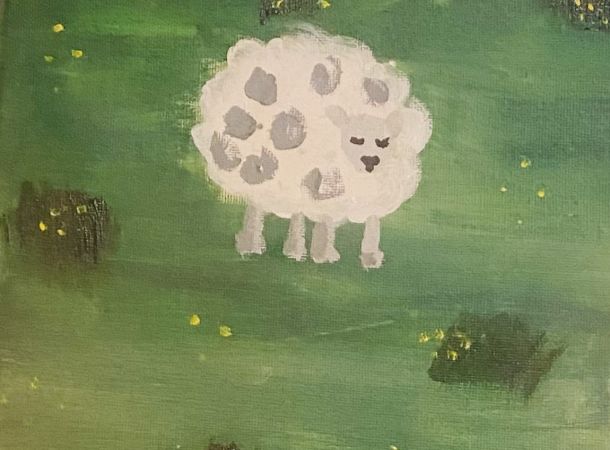Pharaoh the Great House
Pharaoh’s name in Hebrew means Great House. His Great House is probably the most important thing for us to understand since a large amount of the Holy Scriptures speak of Pesach or the Feast of Passover, which describes the release of the Israelites from Pharaoh’s House of Bondage. If Yeshua is the Lamb of Pesach (1 Cor 5.7), then who is the arch nemesis? That would be Pharaoh and Death that came to Pharaoh’s Great House.
Pharaoh is called a tannin that lives in the waters.
Ezekiel 29:3: Speak and say, thus says the Lord God; Behold, I am against you, O Pharaoh King of Egypt, O great monster [tannin] who lies in the midst of his rivers, who has said, ‘my river is my own, I have made it for myself.’
The word translated as monster or dragon is tannin in Hebrew. God created tannin on day five.
Genesis 1:21 KJV: And God created great whales (tannin) and every living creature that moves.
What does it mean that God calls Pharaoh a tannin? The King James version of Genesis 1:21 translates tannin as a great whale, which tells me that he is symbolic of a big kahuna, a powerful human ruler from the nations who inhabit the lower waters.
Ezekiel 32:2: “Son of man, take up a lamentation for Pharaoh king of Egypt, and say to him: ‘You are like a young lion among the nations, And you are like a monster (tan) in the seas. Bursting forth in your rivers, troubling the waters with your feet, and fouling their rivers.’ “
What does Pharaoh symbolize? He symbolizes humanism at its core. He is symbolic of a human who devours the weak and vulnerable, exerting an abusive power over God’s creation, a creation God gave to man to have dominion over, to subdue and replenish in righteousness and justice. He is a human who lacks the Fear of God. Pharaoh is an image of a created being denying his Creator. This human house desires worship, deceiving himself into thinking he is self-created and self-sustained, “my river is my own, I have made it for myself” (Ez 29.3). God did not create us to dwell under the shadow of Pharoah’s or Babylon’s boughs or to be a kingdom unto ourselves; His desire was for us to abide under the shadow of El Elyon, the Most High. Pharaoh’s voice echoes throughout every generation whenever humans deny the glory that is due to God and seeks glory for themselves. When we refuse to acknowledge Him and His goodness and depend on our own strength, we represent Pharaoh’s Great House. Do we place our trust in humanity or the Creator of humanity?
Jeremiah 17:5;7: Thus says the Lord, “Cursed is the man who trusts in man and makes flesh his strength, whose heart departs from the Lord… Blessed is the man who trusts in the Lord and whose hope is in the Lord.
In a First Fruits of Zion Torah Club, I recently learned that James chapter four gives us a recipe for escaping Pharaoh’s Great House of bondage to sin and pride. Verses seven through ten consolidated would look like this;
1) Submit to God. Pharaoh did the opposite.
Exodus 5:2: And Pharaoh said, “Who is the Lord, that I should obey His voice to let Israel go? I do not know the Lord, nor will I let Israel go.”
2) Resist the devil (evil/the urge to sin), and it will depart from you. This Great House and those who dwelt in it were full of wickedness.
Exodus 9:27: And Pharaoh sent and called for Moses and Aaron and said unto them, I have sinned this time: the Lord is righteous, and my people and I are wicked.
3) Draw near to God, and He will draw near to you. Moses asked Pharaoh to release the Israelites for three days so they could draw near to God. Pharaoh refused. We draw near to God through repentance and worship.
Exodus 5:5: And Pharaoh said, ” Look, the people of the land are many now, and you make them rest from their labor!”
4) Cleanse your hands, which means cleanse your actions and the things you do with your hands. Instead of Pharaoh changing his ways, he resolved to go deeper into tyranny.
Exodus 5:9: “Let more work be laid on the men, that they may labor in it, and let them not regard false words.”
5) Purify your hearts. Pharaoh did not purify his heart. Instead, he chose to harden it in rebellion and stubbornness.
Exodus 7:14: And the Lord said unto Moses, Pharaoh’s heart is hardened, he refuseth to let the people go.
6) Lament and mourn and weep. The definition for lament in James is to afflict your soul, which I would connect to repentance. The word for repentance in Hebrew is teshuvah, which means to turn around or return. Isn’t it interesting if this lamenting and mourning refer to repentance, that it is not the first thing we do? First, we must submit to the Holy One, cleanse our works, purify our hearts, and finally repent. Crazy town! Above, we state how Pharaoh confesses that he is wicked. However, we know that an apology without changing your behavior is manipulation. He did not change his behavior, return, or repent.
7) The final step in James is to walk in humility before the Lord. Pharaoh, the House of Pride, is the opposite of humility.
Proverbs 3:3: The curse of the LORD is on the house of the wicked, But He blesses the home of the just.
Paul tells us in 2 Corinthians 6:16 that humans are a house or a dwelling place.
2 Corinthians 6:16: And what agreement has the temple of God with idols? For you are the temple of the living God. As God has said, “I will dwell in them and walk among them. I will be their God, and they shall be My people.”
We are houses, and the Living God dwells inside of us. He is light, love, and wisdom. We can be vessels of this Light, or we can be vessels of darkness, sin, and pride. Choose Light and life!
Parts are taken from ENEME: Understanding Satan From A Hebrew Perspective. The chapter titled Great House.




Leave a Reply